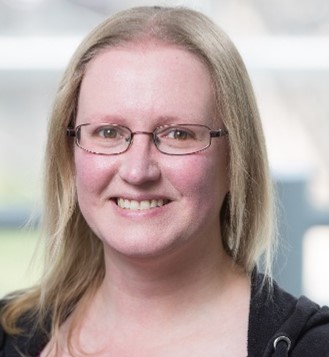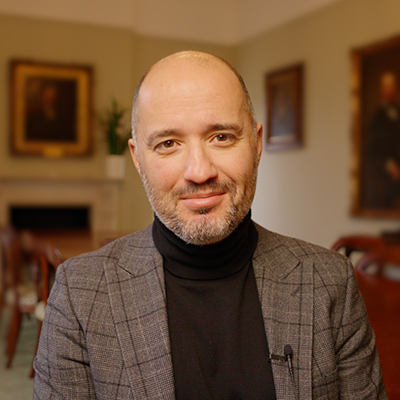

The BSc Pharmacology and Drug Discovery programme will be the first fully online undergraduate Pharmacology degree offered by a Russell Group university. It is currently under development and launches in September 2025.
Dr Emma Taylor, Co-programme Leader and Module Organiser for Communication Skills, and DES Senior Learning Designer Jorge Freire discuss how the programme is being co-designed to develop core skills for successful online and lifelong learning, ensuring students are well-prepared for both academic success and diverse career paths.
The BSc Pharmacology and Drug Discovery programme is unique; it’s the first of its kind at Queen Mary University of London. This global William Harvey Research Institute programme will bring together students from diverse backgrounds and will be delivered by four schools/institutes within Queen Mary, offering cross-institute expertise. However, developing the programme so students build the core skills needed for successful online learning involves more than having students mastering content—it’s about building digital fluency, independent learning strategies, and confidence in navigating an academic community.
As the first undergraduate distance learning programme at Queen Mary, it is refining and extending existing support services to meet the needs of online students. Because the course will be predominantly asynchronous, students will have the flexibility to balance multiple commitments while engaging in active, structured learning. Its Pharmacology focus will incorporate theory with simulations for practical skills, ensuring that students gain hands-on experience in a virtual setting, preparing them for careers in clinical or bioinformatics-based research, regulatory affairs, medical communications, medical sales, science journalism, and beyond.
Challenges and solutions
Starting any degree is challenging, particularly for students new to Higher Education and online learning. Success demands digital capabilities, time management, collaboration, and self-directed learning. Students may face isolation without intentional community building, and asynchronous group work is particularly challenging due to time zones and varying responsibilities.
To successfully complete the programme, skills, values and a feeling of belonging need to grow through a supportive environment and in learning that is contextualised, through authentic examples immediately applicable to their work.
The programme will start addressing these challenges through a two-week onboarding that will introduce key tools, values, and practices, including strategies for asynchronous collaboration, information literacy, time management, and peer engagement through shared documents, forums, and feedback.
After this induction, the programme is being developed so every week will offer flexibility, with interactive, bite-sized activities and collaborative projects woven into key moments. The goal is to signpost links between modules to avoid siloed learning, helping students see how skills from one module apply to another, and develop confidence in a range of assessment types through repeated exposure and feedback provision. Formative assessments will provide regular feedback to help students refine skills, and a consistent assessment structure will ensure continuous engagement without overwhelming students. Feedback literacy will be key and is being prioritised, so students can use feedback for continuous improvement. Bite-sized, feedback-rich activities and week-to-week facilitation will support students in engaging asynchronously, building on feedback, reflecting, self-assessing, posing questions, and participating in structured discussions.
Optional, student-led synchronous sessions will support direct engagement, while flexible collaborative opportunities will foster community despite time zones and varying schedules.
Skill development
The programme’s skills development is grounded in Kift’s Transition Pedagogy (Kift, 2009) and JISC's Digital Capability framework (JISC, 2022; JISC 2024), adapting the programmatic approach to teaching, learning, and assessment mapped in the curriculum. Modules are being co-designed with Queen Mary teams, including the Library and Careers, and modules like Communication Skills, Research Skills, and Introduction to Pharmacology will act as hubs in the first year, teaching students to critically analyse literature, explore the latest developments in Pharmacology, produce reports, and present findings through authentic learning. These modules will foster a solid baseline of essential academic skills and foundational discipline knowledge, which will be applied and further refined and developed throughout subsequent modules, as a spiral curriculum. The Research Skills module, for example, will cover lab safety, documentation, data analysis, statistics, and practical applications, while the Communication Skills module will focus on critically analysing authentic literature and presenting findings in various formats, guiding students through the ongoing, cyclical process through which knowledge is created and disseminated. Academic integrity and information literacy are embedded into week-to-week activities across all modules, ensuring that students learn what to do and why it matters, forging a sense of belonging to an academic culture. As all modules are being co-designed and there is a critical friend stage in that process, module teams are sharing learner journeys and assessment maps to ensure consistency, building skills progressively with continuous feedback.
Belonging from the start
The programme will foster belonging from the start, with peer-led onboarding activities, collaborative projects, and discussions. As modules begin, students will engage in reflective tasks to critique research papers and give peer feedback, encouraging active engagement. Other activities will include peer learning through shared documents, discussion forums, scaffolded activities, and clear communication and feedback. Teacher presence will be key in week-to-week facilitation, with small actions—like acknowledging students' contributions in forums—making them feel seen and supported during assessments. The programme is avoiding module siloing by making explicit connections between modules, helping students see their learning as part of a bigger picture. Core tools, pastoral support, and feedback-rich assessments will be key, with feedback literacy developed throughout.
Conclusion
The overall goal for the programme’s skill development is for it to be a continuous, evolving process, ensuring that each element supports the others, creating an experience where students feel supported, challenged, a part of the University and prepared for their future careers. It is not just about content delivery but about changing the way students engage with learning, guiding them from passive learners to confident, independent thinkers.
By Jorge Freire and Dr Emma Taylor.
References
Jisc (2022) Building digital capability: The six elements defined. Available at: https://repository.jisc.ac.uk/8846/1/2022_Jisc_BDC_Individual_Framework.pdf (Accessed: 18 February 2025).
Jisc (2024) Building digital capability: Student digital capability profile (Higher Education). Available at: https://repository.jisc.ac.uk/8863/13/2024_BDC_Student_HE_profile.pdf (Accessed: 18 February 2025).
Kift, S. (2009) Articulating a transition pedagogy to scaffold and to enhance the first year student learning experience in Australian higher education. Available at: https://transitionpedagogy.com.au/ (Accessed: 18 February 2025).